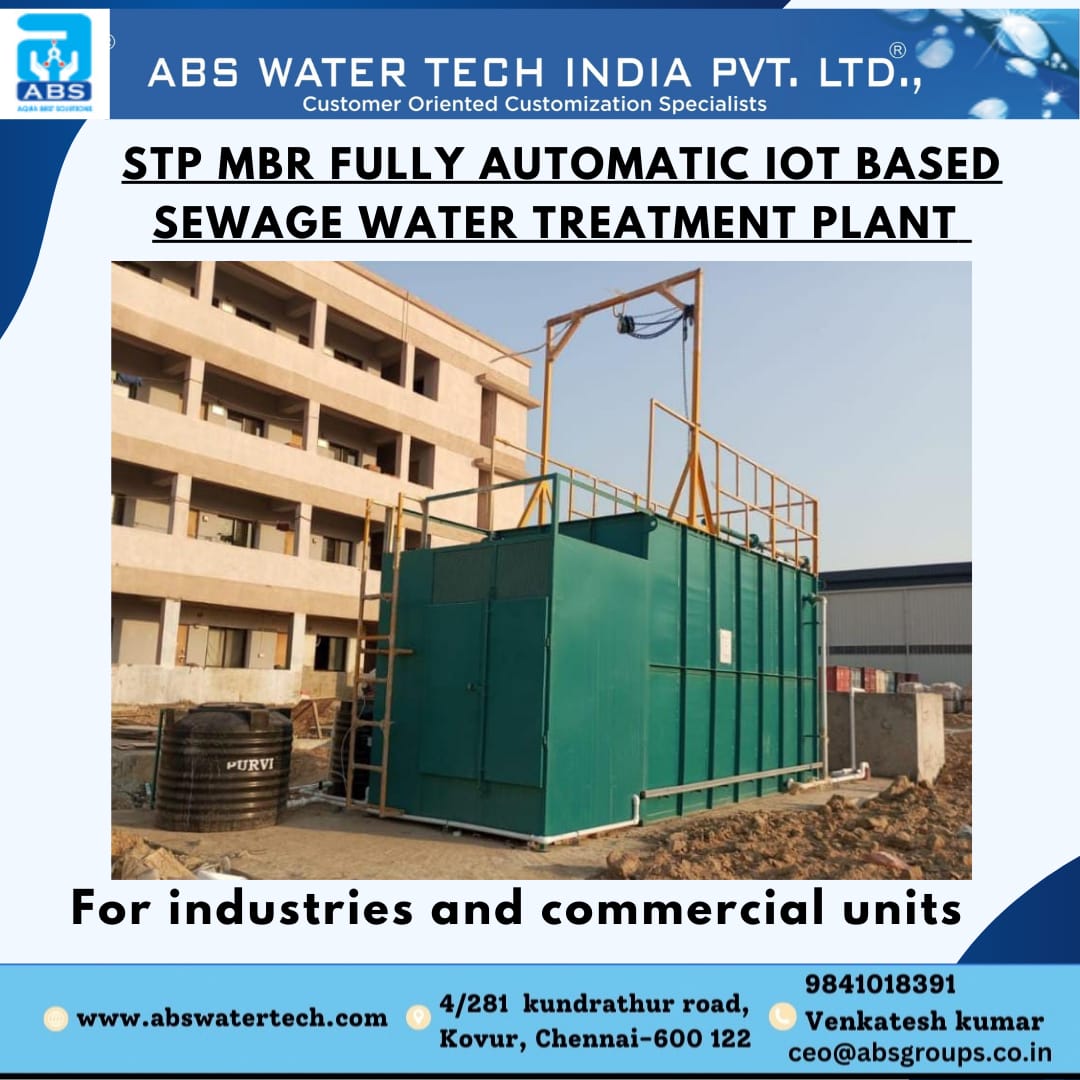STP - MBR IOT BASED AUTOMATIC CONTROL SEWAGE TREATMENT PLANTS
STP - MBR IoT-Based Automatic Control Sewage Treatment Plants for Industries and Commercial Buildings
Modern industries and commercial buildings generate a substantial amount of wastewater that must be treated to meet environmental standards and ensure sustainability. Sewage Treatment Plants (STPs) equipped with Membrane Bioreactor (MBR) technology, enhanced by IoT-based automatic controls, provide an innovative and efficient solution for wastewater management in such setups.
Overview of MBR Technology
MBR technology integrates biological treatment processes with advanced membrane filtration. This system ensures high-quality water treatment by removing suspended solids, organic matter, and pathogens, making the treated water suitable for reuse in non-potable applications such as irrigation, cooling towers, or flushing.
Key benefits of MBR technology include:
- Compact Design: MBR systems require less space compared to conventional STPs.
- Superior Filtration: Achieves excellent water quality with high removal efficiency.
- Flexibility: Suitable for varying wastewater loads from industries and commercial establishments.
IoT-Based Automatic Control System
The integration of IoT technology into STPs revolutionizes the operation, monitoring, and maintenance of sewage treatment plants. IoT-enabled sensors and controllers automate various processes, enhancing efficiency and reliability.
Key features of the IoT-based control system include:
- Real-Time Monitoring: Sensors continuously track parameters such as pH, temperature, turbidity, dissolved oxygen, and chemical concentrations.
- Data Analytics and Reporting: IoT platforms analyze collected data and generate reports for regulatory compliance and performance optimization.
- Remote Access: Operators can monitor and control the STP remotely using smartphones, tablets, or computers.
- Automated Alerts: Alerts for system malfunctions, threshold breaches, or maintenance needs ensure timely interventions.
- Energy Optimization: Smart algorithms optimize energy consumption by controlling pumps, blowers, and aerators based on real-time conditions.
- Predictive Maintenance: Machine learning models predict potential failures, reducing downtime and maintenance costs.
Advantages for Industries and Commercial Buildings
- Cost-Effective Operation: Automation reduces the need for manual intervention, saving labor costs.
- Enhanced Efficiency: The combination of MBR technology and IoT ensures reliable performance under fluctuating wastewater loads.
- Environmental Compliance: Meets stringent discharge norms and promotes water reuse, reducing the ecological footprint.
- Scalability: Ideal for facilities of varying sizes, from small office buildings to large industrial complexes.
- Sustainability: Promotes water conservation and reduces the dependency on freshwater resources.
Applications
- Industrial parks and manufacturing units
- Commercial complexes, malls, and IT parks
- Hospitals, hotels, and educational institutions
- Residential communities
Conclusion
IoT-based automatic control STPs with MBR technology represent the future of wastewater treatment, ensuring high efficiency, cost savings, and environmental sustainability. By adopting these advanced systems, industries and commercial buildings can achieve a balance between operational excellence and environmental responsibility, paving the way for a greener future.


